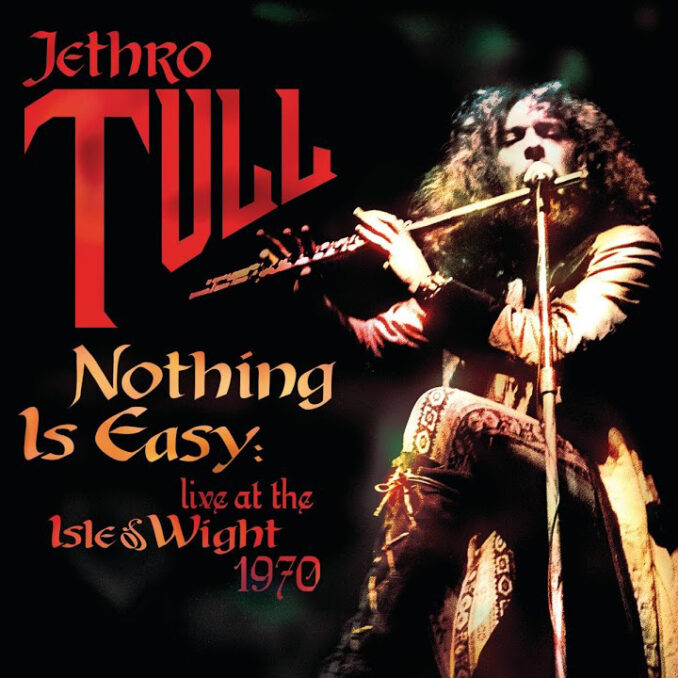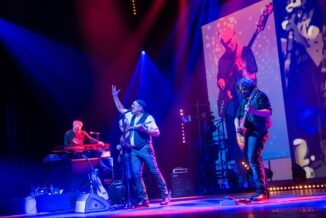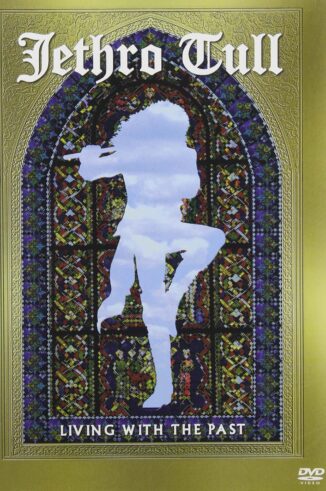
Summary
Eagle Records
Release date: December 2, 2004
User Review
( votes)Come step into the time machine and join us when going back to the last of the flower power days and England’s attempt to make their own Woodstock: the 1970 festival at Isle of Wight. This festival in many ways meant closing the curtains on that major worldwide movement, which the hippies had created. Among the creative forces and headliner bands at that time was Jethro Tull. This CD is their “testimony of the good, the bad, and the noisy,” as front man Ian Anderson puts it on the album’s sleeve notes.
Let’s dwell a second or two with Ian Anderson. Possibly, he is to classically inspired, melodic, Jazz/Progressive/Folk Rock music what James Brown is to Soul music: a godfather. In fact, in the encyclopedia of Progressive Rock, Jethro Tull deserves a subgenre of their own. Considering Anderson’s unique voice, peculiar stage pose while playing his flute, and a number of now timeless classics in several genres, it’s hard to argue with that notion.
Arriving at the Isle of Wight, Jethro Tull and their roadies were fighting with Jimi Hendrix over who got to go on stage first, as both of them unwillingly would be closing this festival, which so terribly had gone astray in terms of program and order. Ian Anderson says that Jethro Tull beat Hendrix to it, as their set up was smaller and faster. Hendrix’s night didn’t start off well, and the ending was even worse: his desire to play new music with his new band was shuttered by the audience’s demand for old hits. A few days later, Hendrix died. Jethro Tull now dedicates their latest release to this odd fellow, who turned music inside out with nothing but a 6-string electric guitar.
Time’s up: let’s check out what testimony Ian Anderson and friends have left us. In short, you could sum it up like this:
Man, what a rush! Such dynamics. Such vitality. Such musical joy.
At the beginning of the CD, Anderson says they will play some old songs, some new songs, and some they have never played before this festival. Seconds later the groovy “My Sunday Feeling” gets the show started. Out next is a very meditative version of “My God,” followed by the sacred “With You There To Help Me” (just listen to how QUIET the audience is …), before “To Cry You A Song” kicks off with its Bach-ish main riff. Then comes J.S. Bach’s “Bouree” in that jazzy wrapping, which helped introduce the great baroque composer to a whole generation. “Dharma For One” was a classic already in 1970, and “Nothing Is Easy” is the last song of the set. But the crowd obviously wants more and thus “We Used To Know” and a slightly fumbling version of “For A Thousand Mothers” become the rewarding encores.
This was supposedly not their best gig, but what makes the album so terrific anyway is the raw energy and “no bullshit” honesty it reveals. Forget about John Evan’s distorted piano in “With You There to Help Me,” Clive Bunker’s sometimes animalistic drumming, Glen Cornick’s fuzzy bass solo in “Bouree,” or Martin Barre’s electric guitar being slightly out of tune also in “Bouree:” they all simply managed to tap into the unique force of music, pouring it out with such pure energy, one is bound to be flabbergasted.
So, this album is easily recommended to all of you! It serves well as a snapshot of the early days of this band, which has influenced so many and inspired even more. It serves well as a snapshot of the Isle of Wight festival too (alongside with the more extensive documentary Message to Love: The Isle of Wight Festival – The Movie by Murray Lerner). Finally, it serves well as an introduction to all of you who are unfamiliar with the band and the magician Ian Anderson. Open your ponytail, put a flower in your hair, sit back and enjoy!



Be the first to comment